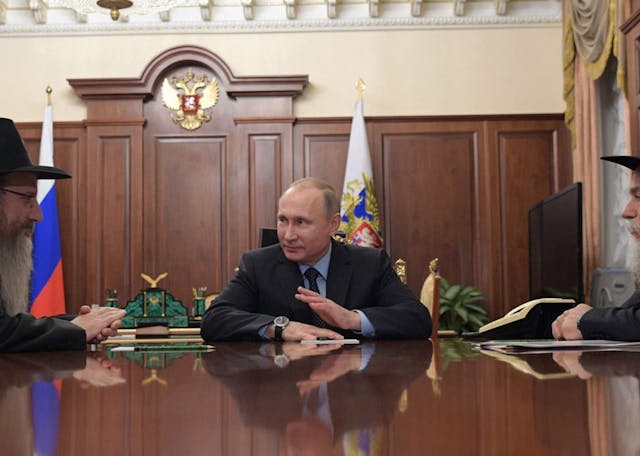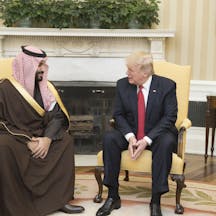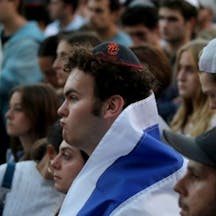
Episode 436·Dec 11, 2025
Rabbi Meir Soloveichik on the Enduring Power of the Psalms
A new podcast series explores how the prayers of David shaped the Jewish people and America.
The Tikvah Podcast·Episode 289·Dec 9, 2022
On February 24, when Russian president Vladimir Putin began his country’s invasion of Ukraine, Jewish leaders found themselves caught on opposing sides of an active war. Ukrainian rabbis have suggested that the war is a holy fight between good and evil. Jewish religious leaders in Russia, meanwhile, have come under heavy pressure to denounce the war publicly, which most of them have thus far avoided doing, no doubt in part since the Russian government is now cracking down on dissent. Instead, they’ve generally taken a publicly pacifist position, arguing that all war is bad and that holiness can be found in peace.


Episode 436·Dec 11, 2025
A new podcast series explores how the prayers of David shaped the Jewish people and America.

Episode 435·Dec 4, 2025
Taking stock of 2024.

Episode 434·Nov 26, 2025
If it doesn’t stand up for the Jews, who will?

Episode 433·Nov 21, 2025
What Christians rejected when they accepted the Jewish God, and why it matters today.
Unlock the most serious Jewish, Zionist, and American thinking.
Subscribe Now